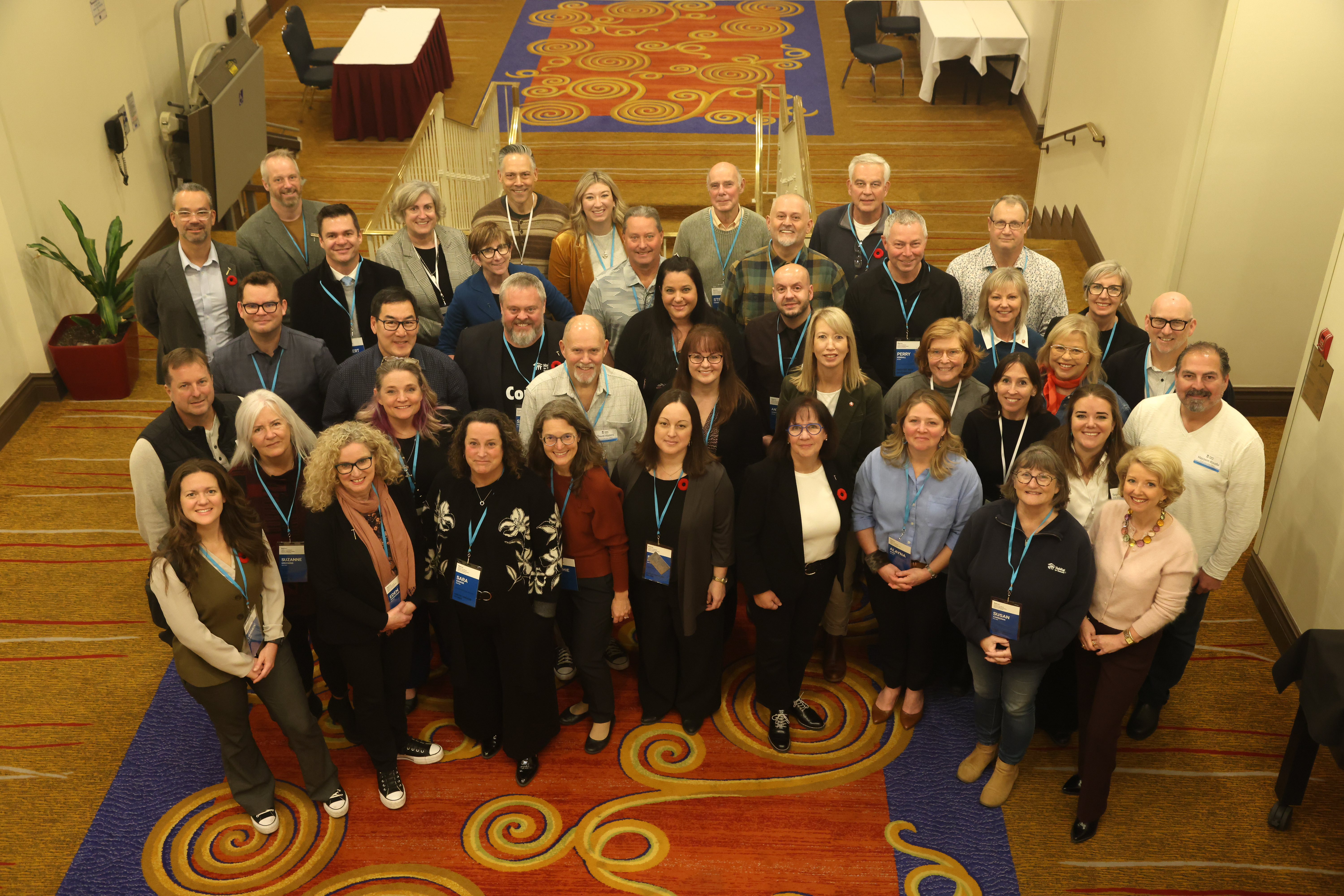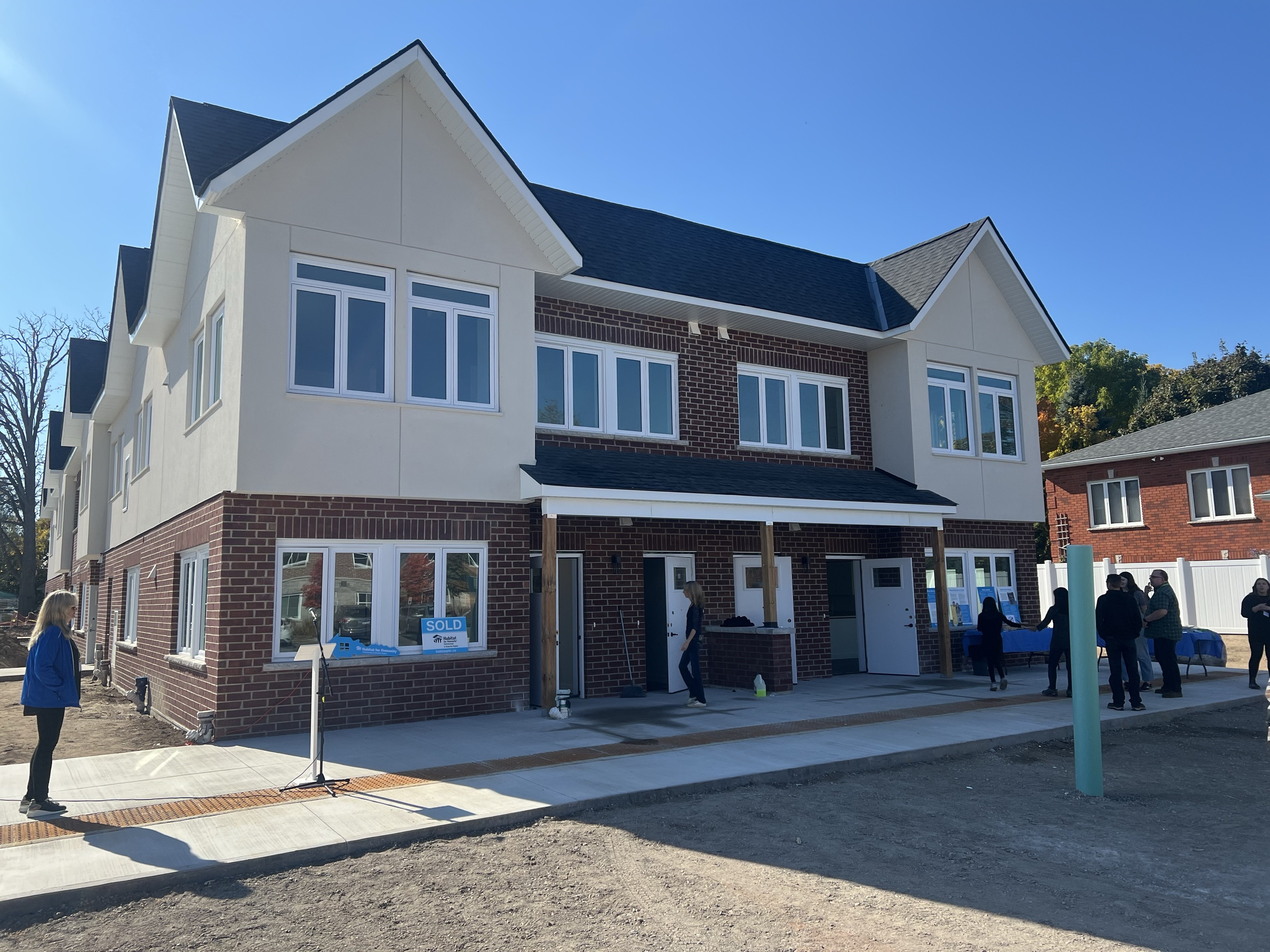Habitat Canada’s submission to the House of Commons’ Standing Committee on Finance
Habitat Canada President and CEO Julia Deans appeared before the House of Commons’ Standing Committee on Finance today in view of its study to provide Habitat Canada’s perspective on Bill C-30: Budget Implementation Act, and spoke on the importance of the federal government investing in affordable housing. Also appearing was Habitat for Humanity Halton-Mississauga-Dufferin COO, Michael Brush. The following are Habitat Canada’s remarks, please refer to the full recording for the ensuing question and answer period which included several acknowledgements of Habitat’s work across Canada.
Bonjour Mr. Chair and Committee Members. Thank you for this opportunity.
I am Julia Deans, President and CEO of Habitat for Humanity Canada. I am coming to you from Toronto, the traditional territory of many nations and now home to many diverse First Nations, Inuit and Métis peoples.
As Canada’s only national affordable homeownership provider, Habitat Canada and our 50 local Habitats partner with homeowners, volunteers, donors and governments to help families living with low income - including Indigenous families on and off Traditional Territories - build strength, stability and independence through affordable homeownership.
Habitat families buy their homes and make mortgage payments that don’t exceed 30% of their income. Even with mortgages, they build equity that helps them educate their kids, start businesses and weather storms like COVID-19.
Housing is so much more than bricks and mortar. Investing in it creates safe and resilient communities and will boost jobs and our economy so that we can build back better. According to the Federation of Canadian Municipalities, every $1 billion invested in housing generates $1.5 billion in economic growth.
COVID-19 has made us all keenly aware that homeownership matters for every social determinant of health: shelter, health, security, stability, and work. Homeownership lifts families and helps them build bright futures for themselves and their children.
In Canada, homeownership is the single greatest enabler of multi-generational economic advancement. Almost 70% of white Canadian families own their homes, but only 30% of Black families. We must democratize the pathways to homeownership and wealth creation. If we don’t, we’re cementing the barriers to racial and economic equality.
Our desire to do much more is why we partnered with CMHC through the National Housing Co-Investment Fund. We are leveraging $35.7 million in forgivable loans to create more than 400 new affordable homes.
We are delivering well on our three-year commitment, creating homes all over Canada, in communities such as Whitehorse, Mission, Calgary, Winnipeg, London, Montreal and the Lennox Island First Nation in PEI, with more builds coming this year. Most of the families benefitting face multiple barriers to homeownership, and 35% are single mothers.
Habitat’s record is why, last December, we were chosen to create housing for Black families in another federal government project. Its $20 million commitment will help Habitat build 200 more new homes across Canada. All told, we plan to deliver over 600 new affordable homes to families in need with this critical Co-Investment.
Knowing the value of the Co-Investment Fund, we were pleased to see Budget 2021 move $950 million forward into it for the next two years. This additional investment is well-timed to support recovery efforts but, to activate it, the government needs partners like Habitat. We have proven that we leverage government contributions to attract funding from other donors and make affordable homes a reality for families who need them.
We are proud to have delivered, and that other charities are being referred to us to discuss our successful participation in the Co-Investment Fund. This is good because, when it comes to improving housing access and affordability, the charitable sector is a key contributor, and we can be counted on to recycle investments into more and more homes.
We are ready to continue scaling our contribution, but we need the government to partner with us – to continue investing alongside us, our donors and the low-income families we serve – as it does so well through the Co-Investment Fund.
We are currently working to renew our agreement with CMHC. We have tooled our federation to execute well and to grow our impact through the Co-Investment Fund. And we want to again stress the importance of adding to the Co-Investment Fund through the proposed budget, because this fund allows the government to invest together with families, donors and charities across Canada to create affordable housing that won’t happen otherwise.
Government investments in affordable housing are essential, and a loan is not an investment. If we were commercial developers, flipping homes and taking out our profits every few years, a loan might be just fine. But we are investing in the long-term future of families and the long-term supply of affordable housing stock they need. We, and other charities and non-profits, need more than a borrower-lender relationship. We need government to be a true partner, one that will leverage our resources and vice versa, for the benefit of families.
We appreciate the strong working relationship we have built with Romy Bowers and her team at CMHC and hope very much to renew our partnership on terms that make sense for the families we serve and want to serve. In the meantime, we urge you to support continued investment in the National Housing Strategy and in organizations like ours that are here to help. Thank you.


